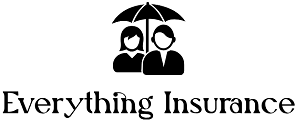When buying a car, it’s normal to get several insurance offers, one of which is Gap Insurance. Usually, there is not much attention paid to Guaranteed Asset Protection Insurance (GAP). Despite being optional, it has its advantages. One major pro is its ability as insurance coverage to help bring down the gap between the ACV of your vehicle and the loan sum you still have to pay.
By the end of this article, you’ll find the answer to the question, What is Gap Insurance?
How Gap insurance works
New cars are like new shoes because they lose value the moment you drive them off the lot. Most cars lose almost 20% of their value within the first year. Here’s where things get tricky. Standard car insurance only covers the car’s current market value, which is its depreciated worth of the car.
If you financed a new car with a small down payment, you might owe more on the loan than the car’s actual value with time. That’s where gap insurance comes in.
Imagine your car getting totaled in an accident. Regular insurance would only pay you the car’s current depreciated value, but gap insurance bridges the gap between that amount and what you still owe on the loan. In a simple answer to What is Gap Insurance? Gap Insurance prevents you from being stuck owing money on a car you no longer drive.
When do you need Gap insurance?
If you have an auto loan or are leasing your car, chances are your lender will ask you to buy collision and comprehensive insurance for your vehicle. These are the ones that pay to repair or replace your car in case of accidents, theft, or other instances.
However, the most disappointing fact for new cars is that they rapidly depreciate. According to Kelly Blue Book (KBB) and Edmund, a reputable source for car information, a vehicle can lose approximately 20% or more of its value during the first year.
And the question is what would be the fate of your car if it gets written off, is destroyed in an accident, or stolen before you have finished your lease or loan agreements? Normal car insurance will pay for the car’s depreciated value, which can be much lower than the amount you still owe on your lease or loan. This generates a “gap” between the owed amount and the amount covered by the insurance.
This is the role that gap insurance plays. It’s add-on coverage that fills in the gap created by depreciation (what the insurance paid you) and financing (what you still owe).
Where you can get Gap insurance
Gap insurance isn’t just available through your car dealer. While they might try to sell you on it during the purchase process, most car insurance companies offer it as well, and often at a better price.
Adding gap insurance to your existing policy with collision and comprehensive coverage only adds a few dollars a year to your insurance quote. This means you can potentially save money by getting gap insurance from your regular car insurer instead of the dealership.
Is Gap insurance worth it?
Gap insurance isn’t a one-size-fits-all solution. Before you buy it, consider a few things. Firstly, gap coverage only applies to leased or financed vehicles, not cars you own outright.
Secondly, compare what you owe on your loan to your car’s current value. You can check Kelley Blue Book or similar sites for estimates. If the loan amount is higher than the car’s worth and you couldn’t afford the difference out-of-pocket if your car was totaled, then gap insurance might be a good idea.
According to the Insurance Information Institute (III), gap coverage is especially helpful if your down payment is less than 20%, your loan term is longer than 5 years, or you’re leasing a car. This often already includes gap coverage. You should check your lease agreement to be sure.
How Much Does Gap Insurance Cost?
The gap insurance cost, which is similar to the car insurance cost, is not a fixed value. It depends on certain factors, such as your place of residence, your driving history, your age, and the type of car you use.
Even so, most insurers offer an endorsement to cover the risk under the existing policy, which might save you some money. While a majority of car dealerships introduce gap coverage as well, there is a high possibility that this might be more expensive than adding it to the coverage you already have.
Conclusion
If you finance a car without a substantial deposit, you will likely own more than the car’s value for a long time. Your gap insurance keeps you covered if your vehicle is totaled before you pay off the loan. It covers what regular insurance does not and what you still owe on your car.
In a nutshell, to provide a short answer to the topic, What is Gap Insurance?, Gap insurance is something anyone who has a car on lease should get for their car. It’ll save you from future losses.





